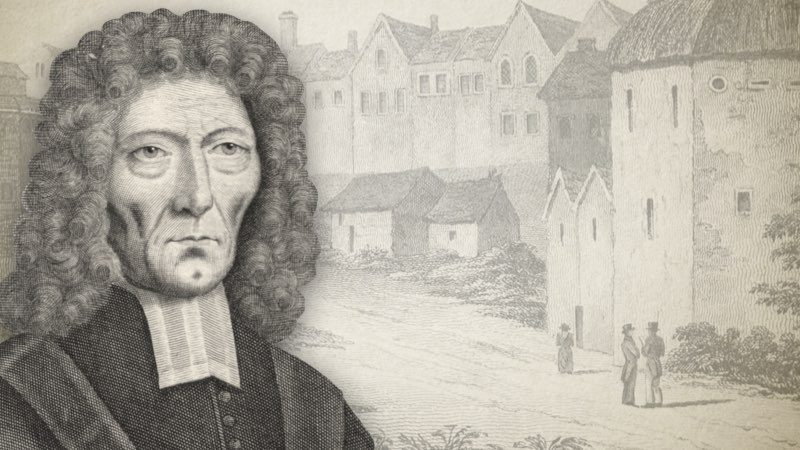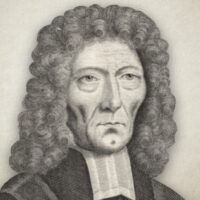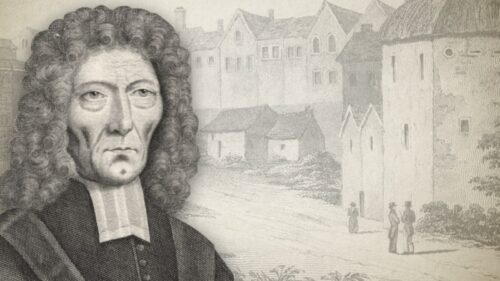
Original Preface
To the Congregation at Horsly-down, who were the Auditors of this Sermon, the Author wishes all the Blessings of the Everlasting Covenant, even the sure Mercies of David.
Beloved,
The Subject treated on, in this ensuing Discourse, is of the highest Concernment; and tho’ the Substance of what is herein contained, you have heard from the Pulpit, yet I am persuaded, it will not be unpleasing to you, to see those great Truths presented to your view from the Press. Some of you know, that I had not time to go through the Whole of my Work the first time, therefore I insisted again on it, the Lord’s Day following; and yet some Things I have added, which was at neither of those seasons delivered, the better to perfect the Work. I told you, the Text was left me by our honoured Brother deceas’d, on his Death-Bed; this Covenant being all his Support, Salvation, and Consolation, (as it was David’s) both in his Life, and at his Death. Nothing like Experience, no Doctrine like to this to die in, (as some of the Papists themselves have confessed.) Men may talk of their own Righteousness, and Gospel-Holiness; yet I am persuaded, they will not dare to plead, in Point of Justification, on their Death-Beds, nor in the Judgment-Day: No, no, ’tis nothing but Christ, and his Righteousness, his Merits, can give Relief to a wounded, and distressed Conscience. I have endeavoured to shew, That the Distinction some Men make between the Covenant of Redemption, and the Covenant of Grace, is without Ground, being but one and the same Covenant; and, That the Covenant of Grace, comprehendeth that between God, and Christ for us, as Mediator about our Redemption, which was as full of Grace, in the first making of it, as in the Revelation, and Application thereof, according to what was promised thereupon, 2 Tim 1:9; Tit 1,2, its Rise, and Constitution, was from Eternity, tho’ the Revelation, and Publication, was in Time: Christ did not (as one observes) purchase a Covenant of Grace for us, to enter into with God; for the Covenant itself, Christ, and all the Grace, and Glory thereof, lay in the eternal Counsel of God’s Will, and accordingly transacted with Christ, as the Representative of all the Elect.
This Covenant is the only City of Refuge, for a distressed Soul, to fly to for Sanctuary, when all the the billows and waves of Temptations run over him, or Satan doth furiously assault him: If We fly to this Armory, We can ne∣ver want Weapons to resist the Devil, nor doubt of Success against him. And now that it may be of Use to you all who shall read it, shall be the Prayers of your un∣worthy Servant, in the Gospel,
Benjamin Keach
Benjamin Keach (1640-1704) was a Particular Baptist pastor and prolific writer. He was converted to Christ in his youth and in 1659 began to preach the gospel under the auspices of a free will Baptist church in Buckinghamshire. In 1664, he was arrested on charges of publishing a schismatical catechism for children. He was sentenced to two weeks’ imprisonment, fined twenty pounds and pilloried for several hours in Aylesbury and Winslow. In 1668, he moved to London and was appointed the Pastor at the Horsleydown congregation in Southwark. Having now come into contact with several Particular Baptist ministers, he began to nurture Calvinistic views of the gospel, becoming one of the leading Particular Baptist ministers in London. He served thirty-six years as the Pastor for the Horsleydown church, was one of the signers of the 1689 Second London Baptist Confession of Faith and was the author of more than forty books.
Benjamin Keach on the Everlasting Covenant (Complete)




